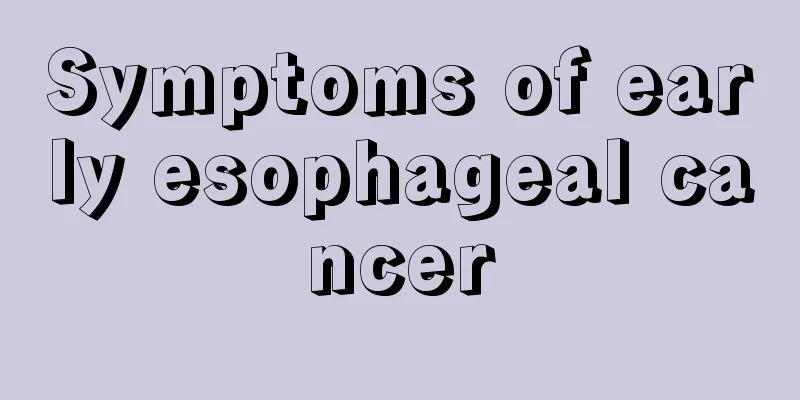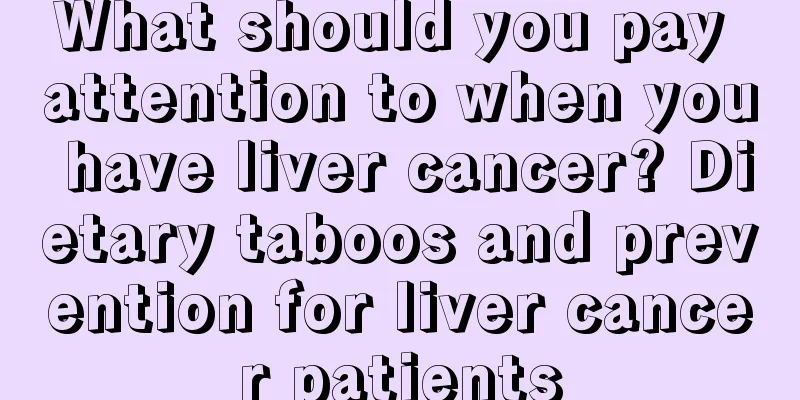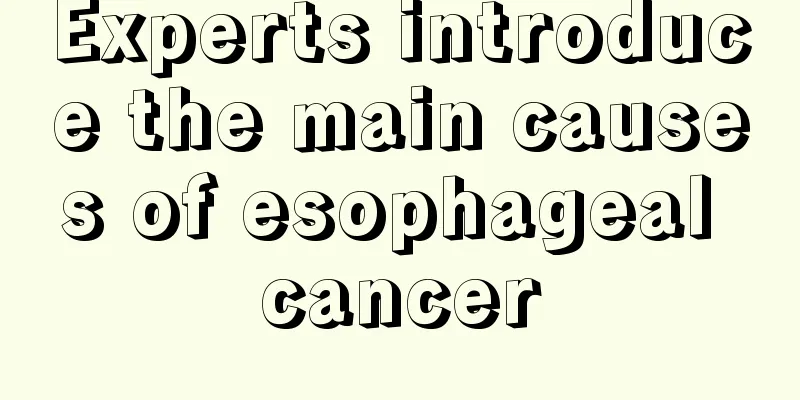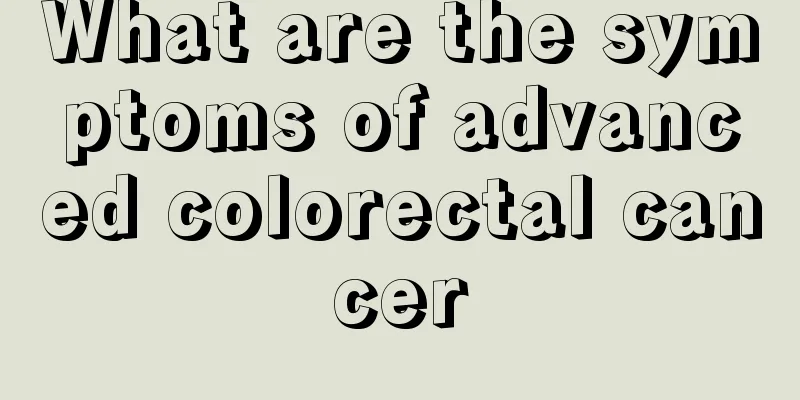Symptoms of early esophageal cancer

|
In recent years, esophageal cancer has become a major disease that endangers human life. It has brought great pain and distress to humans. Early esophageal cancer is confined to the mucosal layer or submucosal layer of the esophagus. There are no specific clinical symptoms or no symptoms at the early stage of the disease. Next, let's learn about the symptoms of early esophageal cancer. Some patients may have latent or nonspecific symptoms, such as discomfort behind the sternum, indigestion or transient dysphagia, or due to local spasm of the esophagus caused by the tumor, the patient may show regular or periodic symptoms of esophageal obstruction. Early esophageal cancer, the symptoms of early esophageal cancer are not obvious, and they often occur intermittently and are easily ignored. The main clinical symptoms of these patients are discomfort or pain behind the sternum, or a sense of friction. Some patients have a "heartburn" feeling, acupuncture-like or pulling and friction-like pain in the upper abdomen, especially when eating rough, overheated or irritating food. Or when eating, you feel that the swallowing process has become slower, etc. It is mostly caused by local lesions stimulating abnormal esophageal motility or spasm, or by local inflammation, erosion, superficial ulcers, and tumor infiltration. It often recurs, and there may be no symptoms during the interval, which can last for several years. Other rare symptoms include stuffiness behind the sternum, dryness and tightness in the throat, etc. About 3% to 8% of cases may not feel anything. About 90% of patients with early esophageal cancer have the above symptoms. The only symptom of early esophageal cancer patients diagnosed by him is pain when swallowing food, but most patients do not pay attention to this and do not seek medical treatment until progressive dysphagia occurs. In order to detect esophageal cancer early, it is necessary to be familiar with the early symptoms of esophageal cancer and conduct corresponding auxiliary examinations in a timely manner to further clarify the diagnosis. (1) Foreign body sensation in the esophagus: The location of the foreign body sensation is often consistent with the esophageal lesions. As the disease progresses, symptoms such as choking when swallowing food and even pain may appear. The cause of this symptom may be due to the congestion and swelling of the mucosa at the site of the esophageal lesions, which reduces the stimulation threshold of the esophageal submucosal nerve plexus. (2) Slow passage of food and a feeling of stagnation: After swallowing food, the food moves slowly and there is a feeling of stagnation. This is more common in the upper and middle parts of the esophagus. It is often mild at first, gradually worsens, and is accompanied by other symptoms. The mechanism may be mainly functional changes, or it may be due to the wider "cancer field" of esophageal cancer and the esophageal mucosa accompanied by varying degrees of chronic inflammation. (3) Pain behind the sternum, stuffy discomfort or pain when swallowing: The pain may be burning, pricking or pulling. In the initial stage, the symptoms are mild and only occur intermittently, and each time may last for a short time. Drug treatment may relieve the symptoms. Later, the symptoms will worsen, recur repeatedly and last longer. (4) Dryness and tightness of the throat: This is an abnormal feeling that may be caused by esophageal lesions causing the pharyngeal esophageal sphincter to contract in the opposite direction. (5) Pain under the xiphoid process or in the upper abdomen : It manifests as persistent dull pain or burning pain, which often occurs when swallowing food and weakens or disappears after eating. It is inconsistent with the location of the lesion. It may be caused by the lesion causing uncoordinated esophageal motility and strong spasmodic contraction of the cardiac sphincter. The above are the symptoms of early esophageal cancer that I introduced to you. I hope it will be helpful to you. Once you find any abnormal symptoms, you should go to the hospital in time to avoid delaying the disease. If you have other questions about esophageal cancer, please consult an online doctor for answers. Feihua Health Network has always been by your side and cared about your health! Believe in miracles and wish you health, happiness and joy! Esophageal cancer http://www..com.cn/zhongliu/sda/ |
<<: What is the diet after colon cancer surgery
>>: How long can you live with gallbladder cancer
Recommend
Causes, hazards and relief methods of loose teeth with gaps
Loose teeth with gaps are usually caused by devia...
What are the symptoms of lung cancer if the lung nodules are present
Lung nodules may be an early manifestation of lun...
How to prevent kidney cancer metastasis
People are terrified of cancer. Under current med...
Composition of methamphetamine
Many people may know about methamphetamine. It is...
Can I drink coffee when I have a toothache
Coffee is a very common drink. Many white-collar ...
Methotrexate treats ankylosing spondylosis, experts analyze the effect
The most common treatment for ankylosing spondyli...
How to prevent breast cancer
Breast cancer occurs in many women in daily life,...
Can foot bathing help slim down your legs?
In daily life, it is not difficult to find that b...
Leather jacket matching, what are the leather jacket matching skills
In daily life, what are the skills of leather jac...
The two most aggressive cancers in the body, once you get them, your life will count down? Many elderly people don't pay attention to this
In the evening, I just finished a day of outpatie...
What medicine is better for itching
The body's senses are very sensitive because ...
What kind of soup is the best for kidney health?
Nourishing the kidneys is a topic that we all car...
3 kinds of therapeutic soups for laryngeal cancer
The throat is the only way for us to breathe norm...
Ten tips for children to protect their teeth
For children, parents must take good care of them...
What are the common symptoms of bladder cancer?
The most common symptom of bladder cancer is hema...









